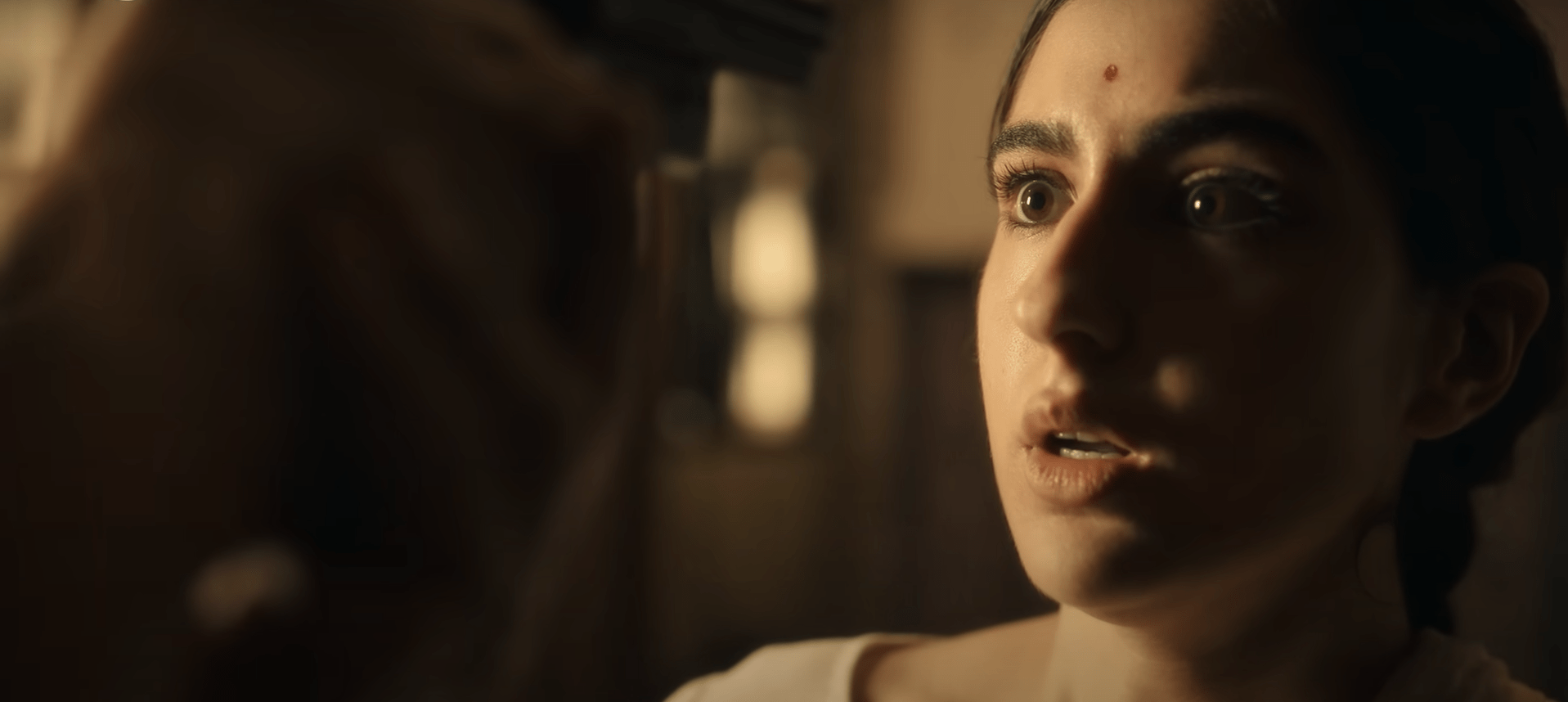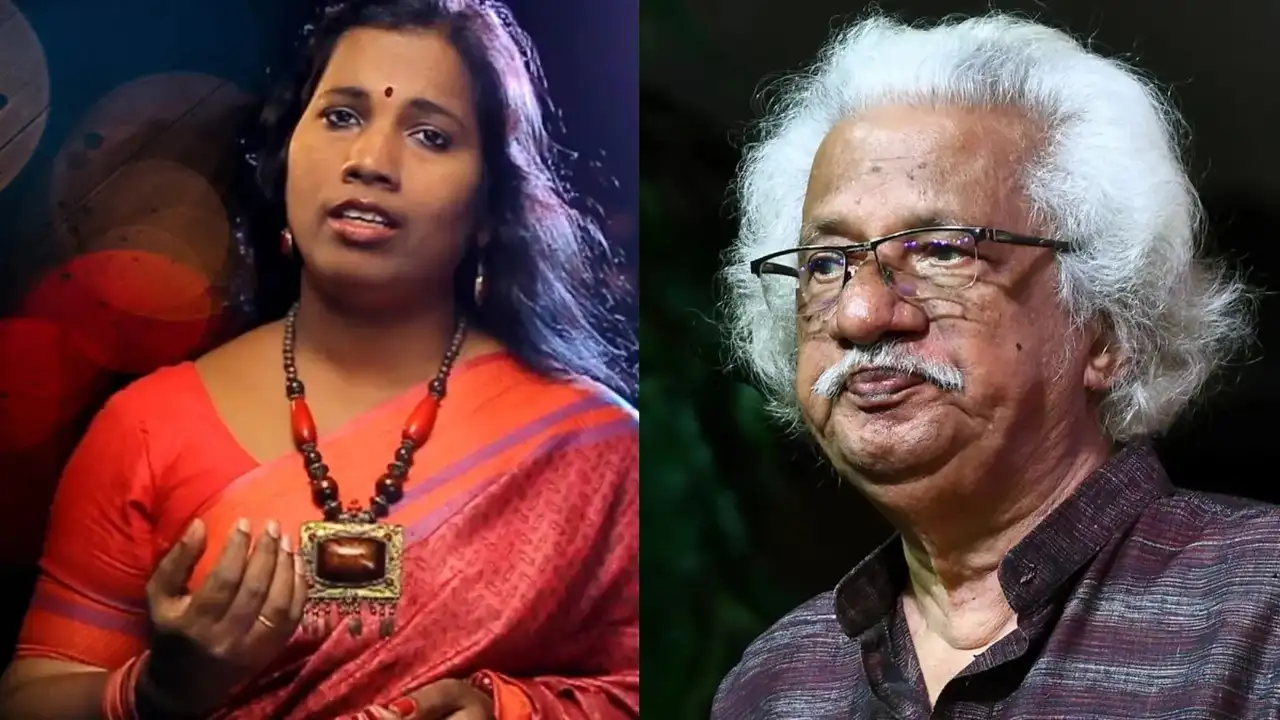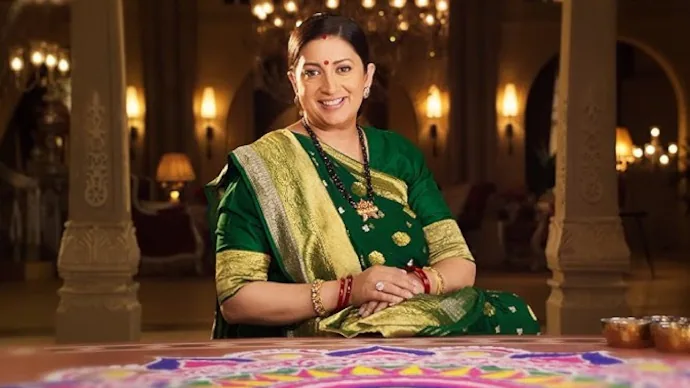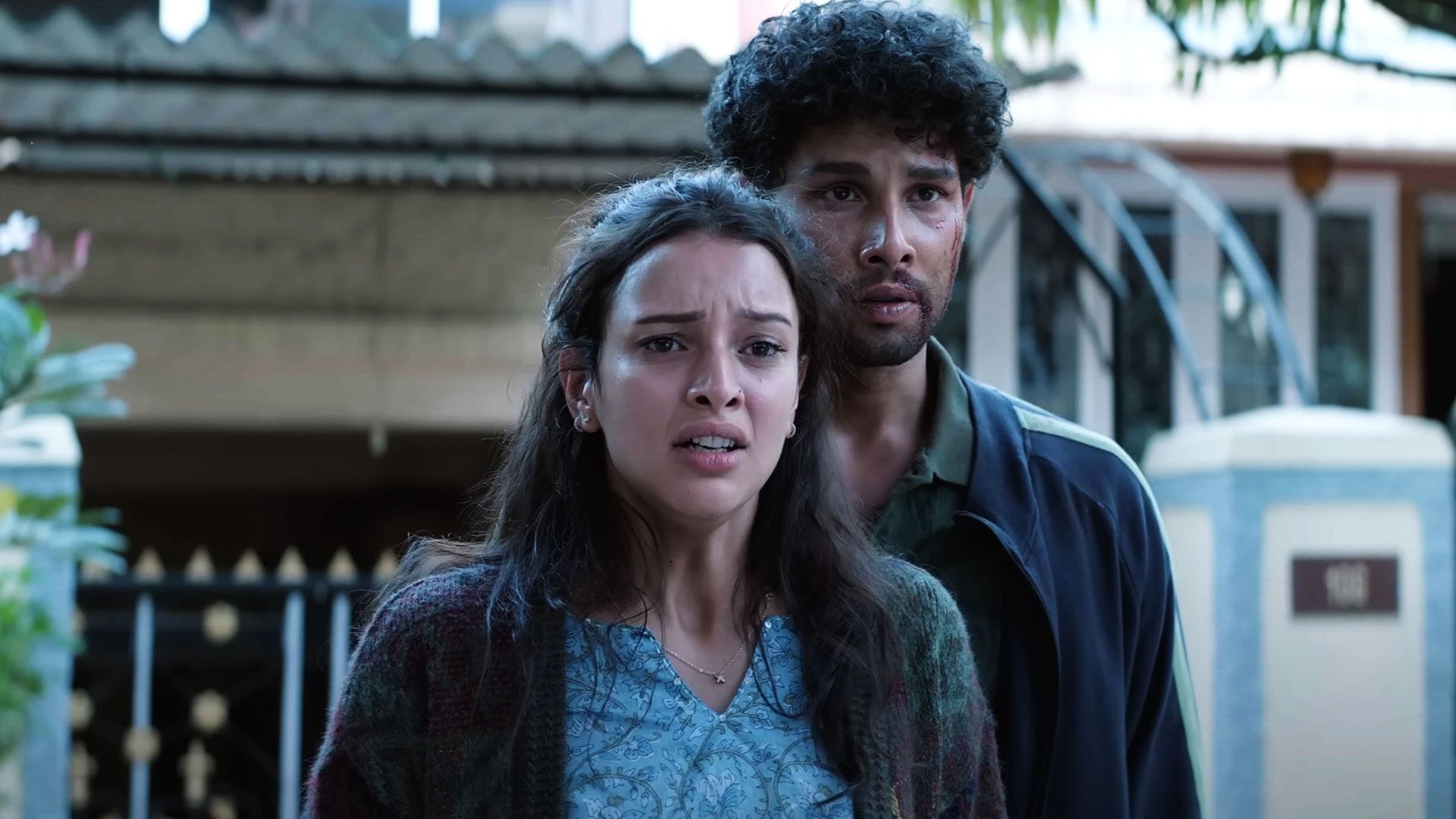Kannan Iyer’s 2024 biopic of freedom fighter Usha Mehta, titled Ae Watan Mere Watan, is a timely and much-needed alternative that counters the stream of blatantly vile and hateful propaganda films that have been released in the past few months leading up to the 2024 Lok Sabha elections.
Starring Sara Ali Khan as Usha Mehta, the Gandhian freedom activist and the founder of Congress Radio, the film is a testament to the historical power of communication to build and sustain popular movements. In a nation rife with hate politics, where the freedom of the people is still being compromised, the film is a well-timed reminder of the collective historical struggle that went into making India independent.
With the recent release of political propaganda films like Swatantra Veer Savarkar, Bastar: The Naxal Story, JNU: Jahangir National University, The Kashmir Files and The Kerala Story to name a few, all of which aim at dividing the nation based on caste, religion, region and ideology, a film like Ae Watan Mere Watan does an impeccable job of uniting the nation, in remembrance of our historic past.
The act of being involved in the making of such a film is especially political, in today’s times. As we stand as a country divided, teetering at the edge of another election, a film like this is a literal blast from the past, a piece of history haunting us to make better choices, this time around.
What is ‘Ae Watan Mere Watan’ about?
Based on the life and activism of a young Usha Mehta, her journey in the freedom struggle and the comrades around her, Ae Watan Mere Watan is temporally located in 1942, during the Quit India movement. As young idealists, Usha and her friends Fahad and Kaushik would attend Gandhian meetings and frequent the local Congress party office. Usha’s father disapproved of this as a colonial-era court Judge, yet he doted on her, as did her aunt.
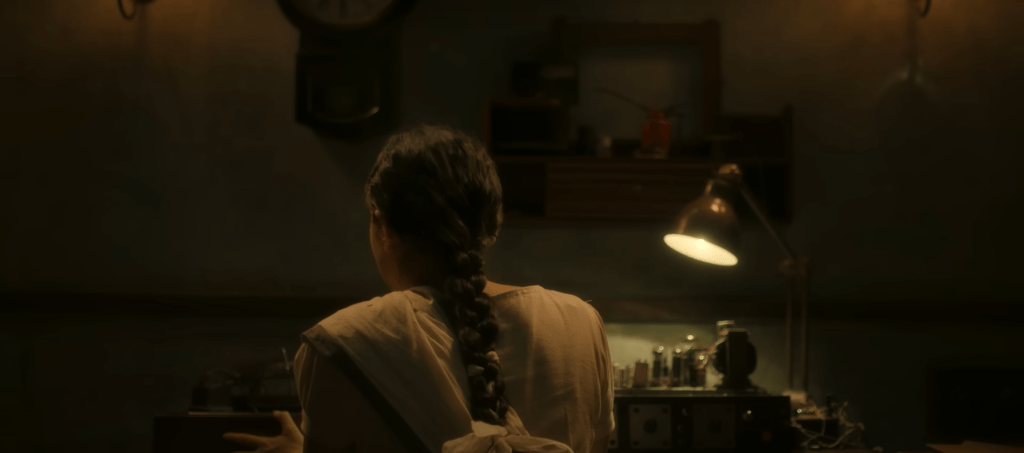
When all of a sudden, the Congress Party is banned, their leaders arrested and all modes of communication and activism made illegal by the British Raj, Usha and her friends hatch up a plan to start Congress Radio, a secret radio station that would reinstill the patriotic fervour for revolution among the people of India. Keeping in mind, Mahatma Gandhi’s clarion call ‘Do or Die,’ the young activists began their underground radio which soon gained momentum and popularity, reigniting the revolutionary zeal within people in every corner of the nation.
Soon joined by eminent freedom fighters like Ram Manohar Lohia, the founder of the Congress Socialist Party, the radio station kept the spirit of India alive, despite being at risk, due to constant searches and raids by the British police who intended to silence it.
Brilliant messaging and political commentary, but subpar acting
The film, brave in its political messaging, depicts colonial India accurately and does a fantastic job of honouring the freedom fighters who dedicated themselves to the project for India’s independence. It is indeed quite refreshing to see pluralistic patriotism in a film instead of the usual rabid hypernationalism we see on screen, nowadays.

However, while the film excels in its politics, it lacks in acting. Sara Ali Khan as Usha Mehta seems unimpressive at best and bland at worst. Her acting, as well as the acting of most others, are forgettable and seem forced and awkward. Part of the reason for this poor acting could be the possible lack of relatability with the characters, who belong to a very specific time in history. However, the framing of the story and the point it makes, somehow compensate for the below-average acting.
Where Ae Watan Mere Watan excels without a doubt is the telling of the story, itself. This film, unlike many of its contemporaries, does not need to twist and manipulate history or present a version of it that promotes hate, bigotry and exclusion. The story sets out to highlight an unsung hero in the history of our country, a brave woman who was crucial in our struggle for independence. However, in this project, this film also drives home the importance of press freedom. The radio, at that time, was the best mode to broadcast and share news and announcements. It also had the potential to reach a diverse audience across the length and breadth of the nation. The radio, therefore, was the equivalent of today’s press.
In an India, that has, of late, ranked abysmally low on global press freedom indices, where independent journalists are in jail facing UAPA charges or encountering rape and death threats on the daily, the India of the 1940s, where activism was banned and secret radio stations were being sniffed out by the brutal police, seems all too relatable.
History tends to repeat itself, and it seems like we have learnt little from it. Ae Watan Mere Watan reminds us of this power of the press, that embodies the true spirit of India. Even after 75 years of independence, the film makes us question the extent to which we truly are free.
Bringing forth unsung heroes from the annals of history
As the country witnesses the back-to-back release of biopics of figures of supposedly “great” historical and political importance, portrayed as larger than life, hypermasculine heroes, right from Savarkar and Vajpayee to the biggest political player of them all, Modi himself, making a biopic on a hidden hero like Usha Mehta showcasing her huge contribution to the Indian freedom struggle is not only sensitive and necessary, but also brave and truth be told, a little risky.
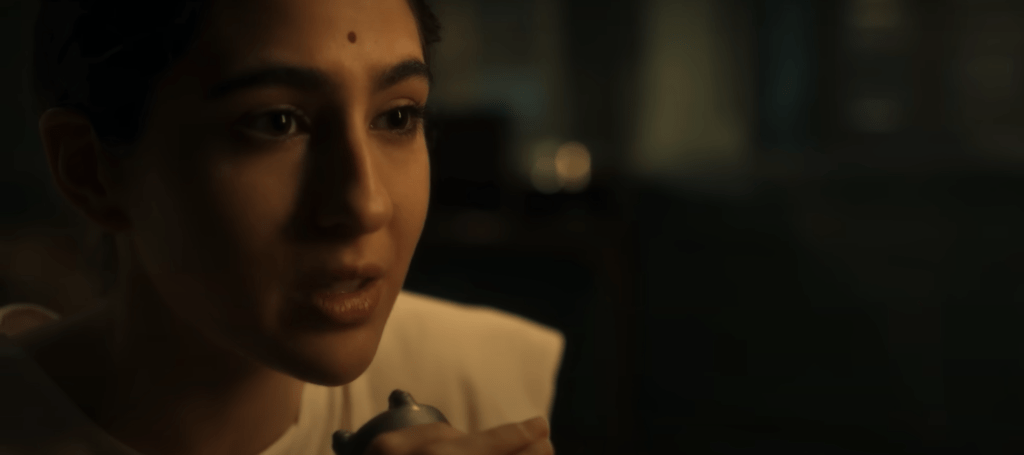
Usha Mehta, a staunch Gandhian till death, never joined any political party in independent India. In a box office where stories of powerful political giants garner great hype, if not revenue, making a story on a woman like Usha Mehta necessitates courage, conviction and most importantly faith.
Bringing forth stories of Indian women in history like Usha Mehta, whose struggles, contributions and activism have gone unnoticed and underappreciated in a nation of heavyweight political giants making tall promises just before elections, is a much-needed feminist project. Usha Mehta’s life and work shall continue to inspire people who dream of an India, truly independent.
A film like Ae Watan Mere Watan should be identified for what it truly is- an out-and-out political film. But this brings us to the question, what even is a political film? Are films ever apolitical, existing in a vacuum in society, or reverberating in echo chambers? Does a film being ‘political’ necessarily mean that it is a bad film? Most importantly, why, at all, do films need to be political?
In a nation where politics define and decide everything, films, too, have political ideologies or messaging. At a time, when every act we perform is political, films should be, too. All films use the cinematic mode to convey an overt or a subtle political message. What matters, however, is the specific brand of politics a work of art stands for.
A film like Ae Watan Mere Watan refuses to bow down to the dominant political dispensation of our times and retains its defining characteristics as a historical, political and patriotic film, without falling into the traps of divisive propaganda, jingoism and hyper-nationalism. The film departs from the current wave of propaganda cinema that harps on their dangerous ideologies. In essence, Ae Watan Mere Watan is a timely caveat before the 2024 Elections, telling us to choose better, do better and keep the true spirit of India alive.
About the author(s)
Ananya Ray has completed her Masters in English from Jadavpur University, Kolkata, India. A published poet, intersectional activist and academic author, she has a keen interest in gender, politics and Postcolonialism.
